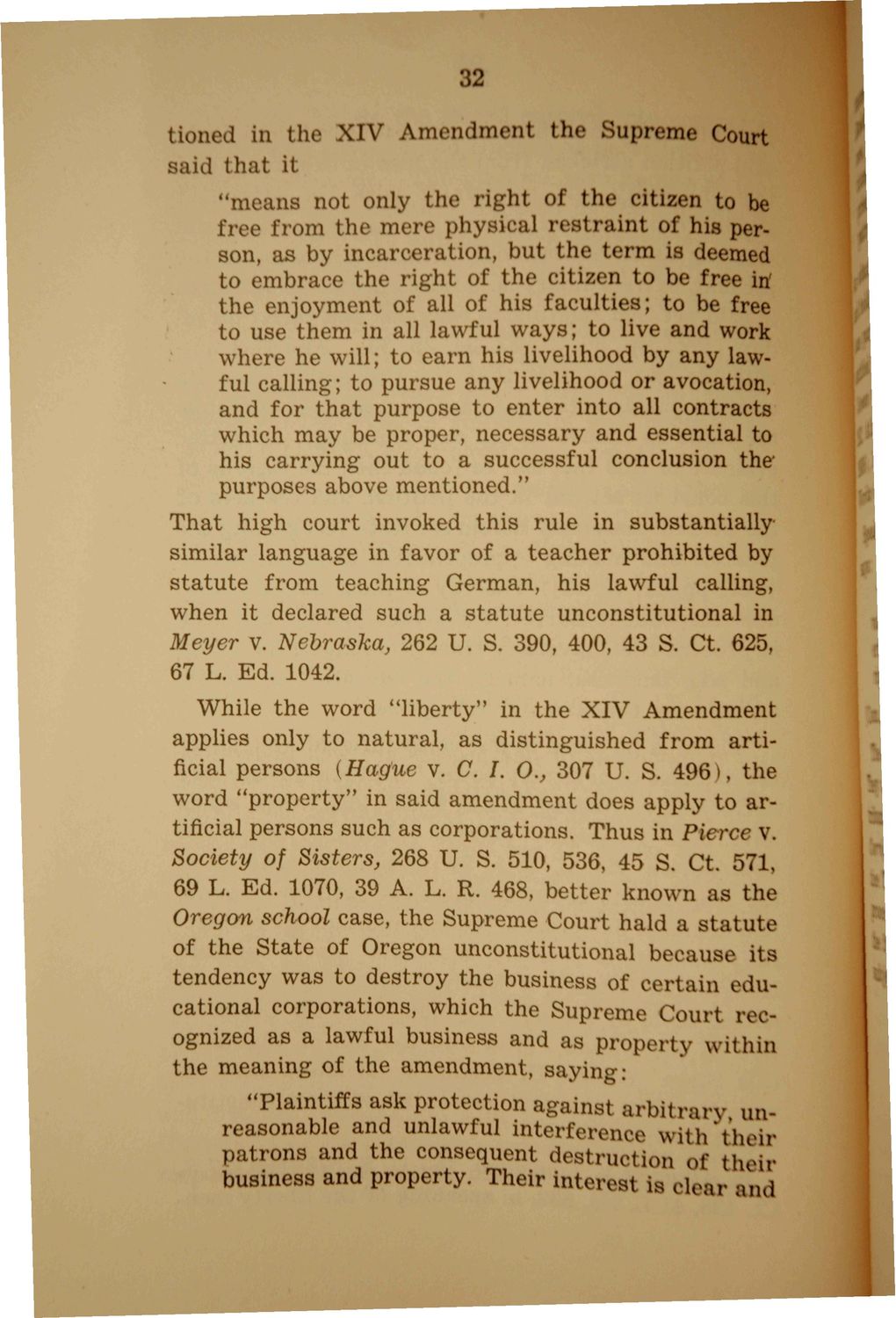| |
| |
Caption: Booklet - UI Charter of Freedom (1942)
This is a reduced-resolution page image for fast online browsing.

EXTRACTED TEXT FROM PAGE:
32 tloned in the XIV Amendment the Supreme Court said that it "means not only the right of the citizen to be free from tht mere physi al restraint oi his person, as by incarceration, but the term is deemed to embrace the right of the citizen to be fret in the enjoyment of all of his faculties; to be free to use them in all lawful ways; to live and work where he will; to earn his livelihood by any lawful calling; to pursue any livelihood or avocation, and for that purpose to enter into all contracts which may be proper, necessary and essential to his carrying out to a successful conclusion the purposes above mentioned." That high court invoked this rule in substantially similar language in favor of a teacher prohibited by statute from teaching German, his lawful calling, when it declared such a statute unconstitutional in Meyer v. Nebraska, 262 U. S. 390, 400, 43 S. Ct. 625, 67 L. Ed. 1042. While the word "liberty" in the XIV Amendment applies only to natural, as distinguished from artificial persons {Hague v. C. I. O., 307 U. S. 496 i, the word "property" in said amendment does apply to artificial persons such as corporations. Thus in Pierce v. Society of Sisters, 268 U. S. 510, 536, 45 S. Ct. 571. 69 L. Ed. 1070, 39 A. L. R. 468, better known as tht Oregon school case, the Supreme Court hald a statute of the State of Oregon unconstitutional because its tendency was to destroy the business of certain educational corporations, which the Supreme Court recognized as a lawful business and as property within the meaning of the amendment, saying: "Plaintiffs ask protection against arbitrary unreasonable and unlawful interference With theil patrons and the consequent destruction of theil business and property. Their interest is clear and
| |